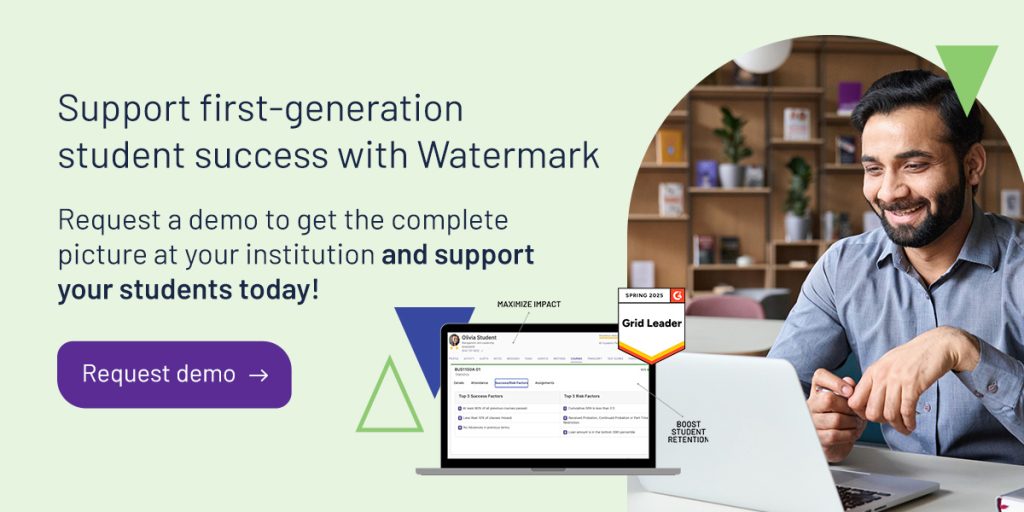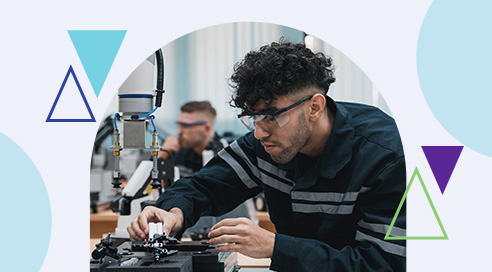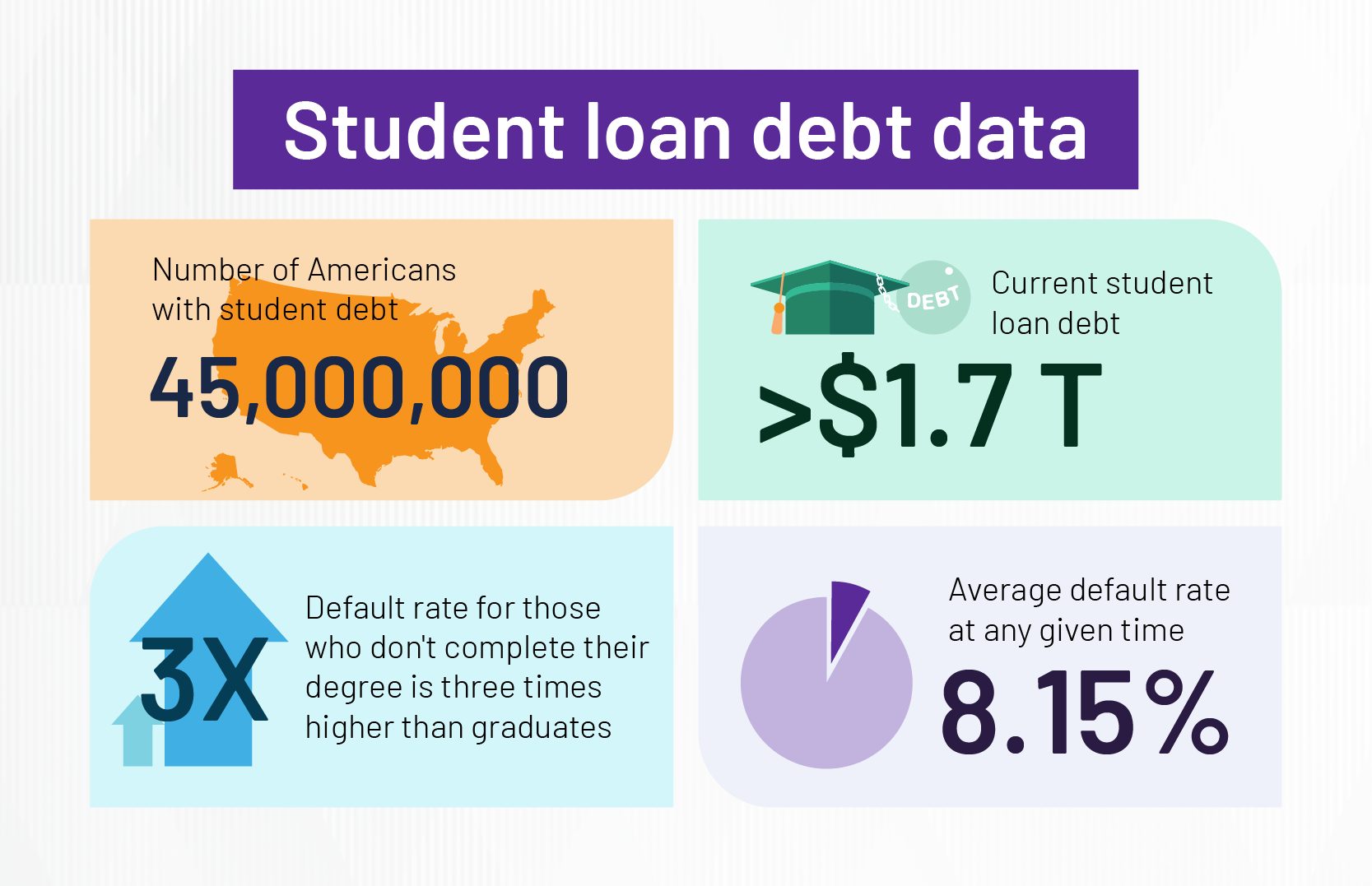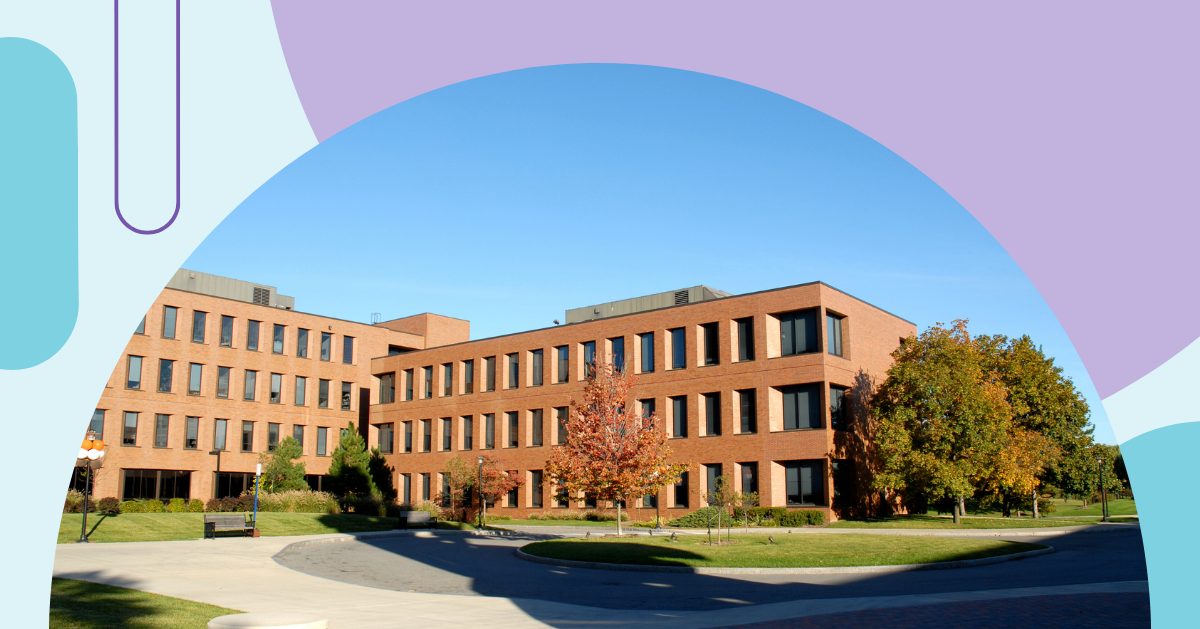
At their core, higher education institutions aim to support students from all backgrounds through their academics and onto successful careers. Today, 56 percent of all undergraduates are first-generation students, and many experience unique challenges as they navigate higher education for the first time. However, despite these obstacles, they bring drive, resilience, and unique perspectives to your institutions.
Without the proper resources and guidance, these students may encounter significant challenges as they transition to higher education. Over time, they may disengage and drop out if their obstacles become too great. Higher ed success coaching for first-gen students can help boost engagement and retention while helping these students thrive in a new environment. In this article, we’ll cover tips to elevate success coaching at your institution and give first-gen students the support they need to succeed.
Roadblocks to first-generation student success
The transition to higher education is often significant for first-generation students. Being away from home without the support system and preparedness that legacy college students have can be a massive culture shock. First-generation college students may find the change overwhelming, affecting their academic performance and persistence. As a result, they require additional support.
Some of the challenges that first-generation students face include:
- Social and cultural adjustments: Studying at a campus far from home can make students feel isolated. In addition, first-generation students often encounter challenges connecting with their classmates, with 43 percent feeling like they don’t fit in. In addition, campus culture is different from anything these students have likely experienced in the past, which can drive them to withdraw further and become more isolated.
- Psychological challenges: As the first in their families to pursue higher education, many first-gen students have psychological challenges. These include guilt over leaving their families, anxiety, pressure about academic achievement, and imposter syndrome. In addition, they may encounter challenges navigating support resources, which compounds their uncertainty.
- Financial concerns: Many first-generation students come from lower-income families, which leads to stress over their academic achievements and ability to sustain their studies. Some may have to work alongside their educational commitments, which adds to their burden.
- Academic preparedness: Some first-gen students come from more relaxed high schools, making the jump to higher education even more pronounced. They may quickly lose confidence, especially when dealing with the academic system at your institution.
5 strategies for coaching young first-gen students
Despite the challenges that first-generation students face, there is plenty that your institution can do to support them as they acclimatize. Many elements contribute to their success, and success coaching is one of them. It’s an effective way to provide targeted support, help these students set goals, and guide them through the inevitable challenges of achieving a degree.
Many institutions have already integrated success coaches due to the results they bring. However, each vulnerable group of students requires a unique approach. Some tips and tricks to provide effective success coaching for first-gen students include:
1. Cultivate a growth mindset
First-generation students have strengths that their counterparts may lack. They develop resilience, determination, and problem-solving to get into higher education in the first place. Your institution can reframe the narrative for these students, acknowledging these characteristics instead of considering their identities as deficit-based.
Success coaches can foster this perspective and create a growth mindset in their students. It’s a widespread cultural shift that allows first-gen students to view their setbacks as opportunities for growth rather than unsolvable challenges. They can integrate conversations around resilience and navigating the challenges of campus life. They can set goals around persistence and outline actionable strategies that help these students develop a growth mindset and resilience.
2. Highlight access to support and resources
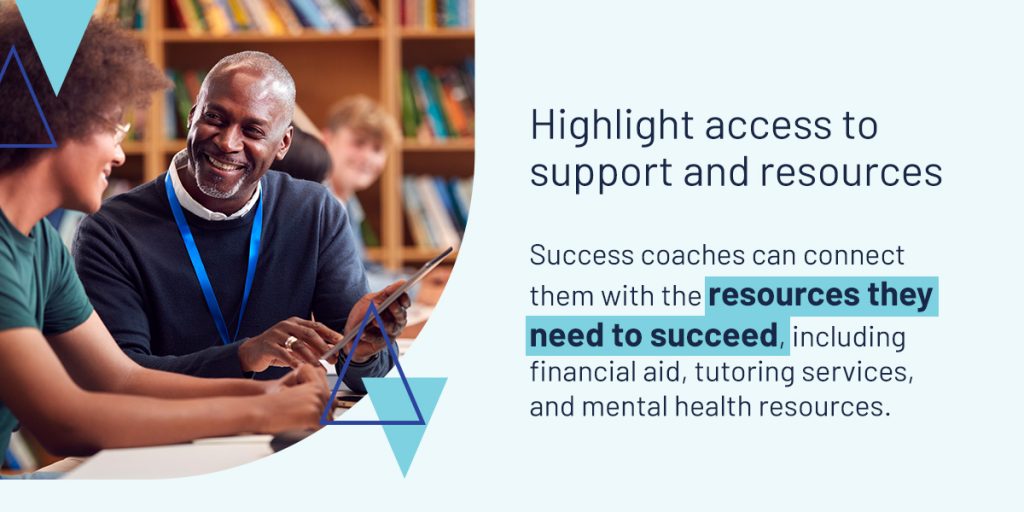
Many first-generation students are unaware of the resources and tools your institution provides. Success coaches can connect them with the resources they need to succeed, including financial aid, tutoring services, and mental health resources. It’s even more important to ensure they can navigate your support, as they often lack the support systems available to students from families with a history of higher education.
Success coaches provide guidance and support as students navigate these resources, which in turn helps them overcome academic and social challenges. In addition, they offer a valuable introduction to campus life, showing first-gen students how to engage with their peers through clubs, job opportunities, volunteer placements, and more.
3. Leverage data to inform success coaching efforts
Technology and data play a fundamental role in first-generation student support. They allow you to identify at-risk students during enrollment and target success coaching to their specific needs. In addition, student enrollment, assessment, faculty evaluation, and engagement data alert you when students veer off course, allowing success coaches to take proactive steps to get them back on track.
Share student data with success coaches, including course attendance, assignment hand-ins, tardiness, and class engagement. The more they know about each student, the better they can support them through challenges. Assessment data gives success coaches invaluable information on each student’s goals, strengths, weaknesses, and learning styles, allowing them to craft an individualized success strategy.
4. Focus on career pathways and networking
Like many students, first-generation attendees pursue higher education to increase their earning potential and achieve their career goals. Success coaches should focus on pathways to career success, providing a mix of actionable steps and social advice. They should empower first-gen students to build networks, develop soft skills, gain internships early on, and help them align their academic pathways with their career goals.
Many first-gen students face barriers in accessing opportunities. Success coaches can encourage them to engage in leadership and extracurricular activities on campus. Once they understand the value and accessibility of these opportunities, they will likely continue engaging with every aspect of campus life.
5. Check in regularly and adjust support as needed
Coaches should proactively set quantifiable metrics to help students stay on track. From the outset, they can assess progress through tracking academic performance and progress toward goal achievement while gathering feedback from students and faculty.
With the data at their fingertips, coaches can identify each student’s strengths and focus areas and adjust their coaching accordingly. Access to real-time first-gen student data means coaches can continually refine their strategies to provide flexible, personalized support.
Support first-generation student success with Watermark
Supporting first-generation students is essential to promoting greater accessibility in higher education. In addition, a comprehensive support system and student success coaching boost enrollment and retention. When student success coaches have access to data, they can drive results for first-gen students and your institution.
It starts with innovative solutions like Watermark Student Success & Engagement. This tool allows you to offer proactive support to first-gen students. It alerts you when they lose momentum so you can intervene. As part of Watermark’s Educational Impact Suite (EIS), this technology provides a centralized hub for using data to drive continuous improvement. Request a demo to get the complete picture at your institution and support your students today!
